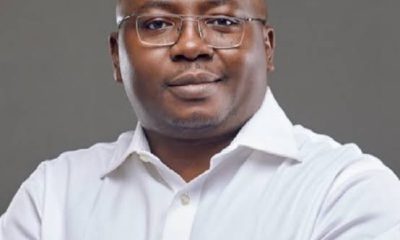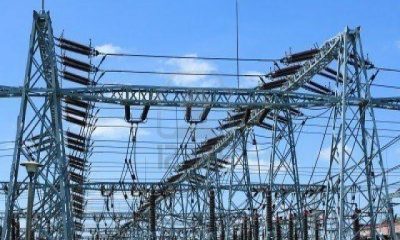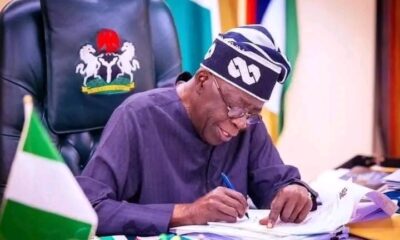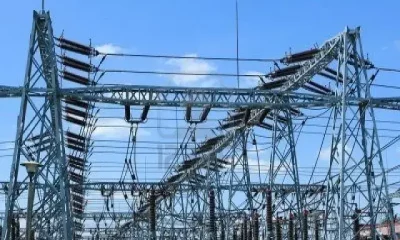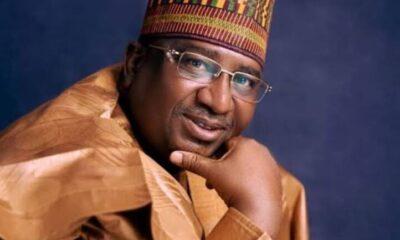Headline
Forum blames hoodlums for grid collapse
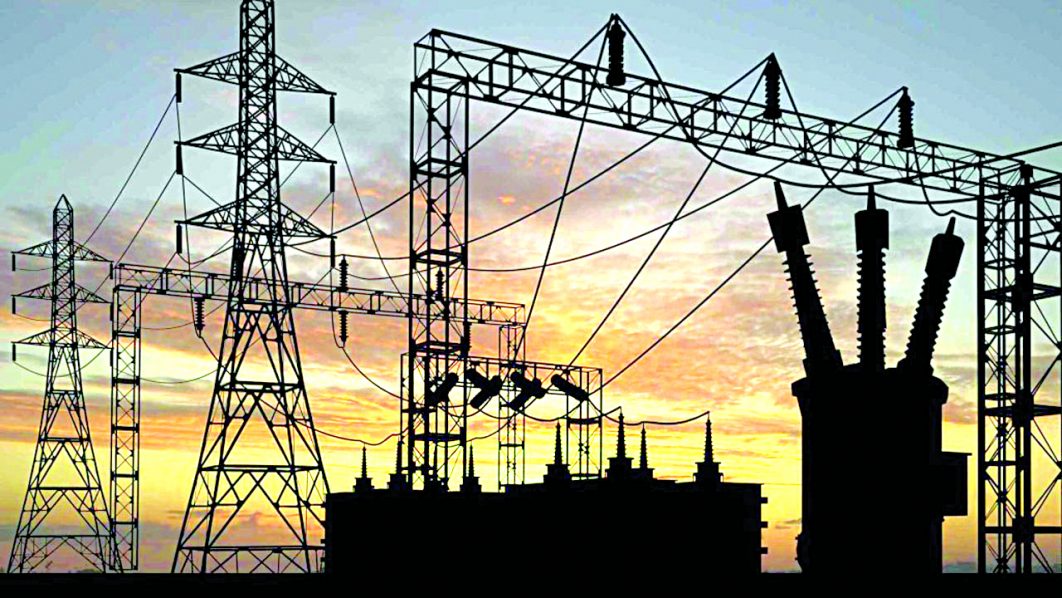
The Nigerian Power Consumers Forum (NPCF) has blamed the recent grid collapse in the country on sabotage by hoodlums who may not mean well for the country.
Mr Michael Okoh, Convener of the NPCF, said this in a statement in Abuja on Thursday.
He said the grid collapse was not due to the lack of capacity on the part of the company, adding that it was a case of sabotage by hoodlums, who may not mean well for the country.
”The fire incident at the Birnin Kebbi transmission substation switchyard is more of a sabotage on the national grid systems, ” he said.
According to him, power engineers who have over three decades of experience, believe that technically, there is no way two power transformers separated by a reasonable distance from each other will be engulfed by fire simultaneously.
He said that transformers have inbuilt system protection and the probability of a transformer ignition is quite low.
”However, saboteurs could devise any means to disrupt the flow of electricity by pulling out transformer components, ” he said.
According him, immediate enquiries into the incident, both at he 90 Mega Volt Ampree, (MVA) transformer on the 330KV line and the 60MVA transformer on the 132kV line experienced a fire incident simultaneously inspite of being apart, separated by a reasonable space.
”The issue of voltage or surge was ruled out as TCN has robust protection and isolation mechanisms, instead, only internal issues within the transformer can lead to such incidents.
“’This is not the first time critical national infrastructures have been sabotaged as cases abound everyday of oil theft rupturing pipelines.
”Hacking of power transmission towers of which over 20 of such cases were reported by TCN in the last 12 months,” he said.
Okoh said that just after the pronouncement on the efforts of TCN on grid stability, the power sector has recorded at least two system collapses in succession.
He said that the grid collapse was caused by a fire incident in the Birnin Kebbi transmission substation and line snap along the 330 Kilo Volt (kV) Jebba – Kainji transmission line.
He said that these incidents have caused nationwide outages which the NPCF believes is to bring the management of TCN into disrepute.
“’While the investigation is ongoing, all indications refer to sabotage on both transformers as they are not linked and operate on two voltage levels and transmission lines, ” he said.
Okoh said that Niger Republic was receiving bulk power from a 150MVA lower transformer in the Birnin Kebbi substation.
He said that this was because of the important role of Kebbi substation nationally and internationally, adding that it was properly fitted with all protection and safety devices.
”The NPCF strongly notes that there may be an external force acting against the nation’s transmission system.
”We believe that the government of the day will strive to identify and bring the saboteurs and perpetrators of this act to book, ”he said.
According to him, the forum noted that TCN has been maintaining its grid efficiently for 421 days and the grid is looped in some places.
”This is coming just some days after the Transmission Company of Nigeria (TCN) stated that for over 400 days, the system has been relatively stable.
”Nigerians have seen the enormous work done by the current TCN management led by Mr Sule Abdulaziz. For instance, in the history of Nigeria, the TCN for the first time, took delivery of over 30 power transformers in 2022.
”And all were deployed to site for onward installation. The projects TCN are executing to improve access to bulk electricity covers all the six geopolitical zones too,” he further noted.
Okoh said that from independent assessment which started in 2022 and up to 2023 , the forum was able to confirm the various initiatives TCN deployed to stabilise the grid, including the use of Internet of Things (IoT).
”And the deployment of the stop gap system as a placeholder for a smart grid system, which is in the advanced stage of the procurement process.
”For a robust deployment of a full-scale state-of-the-art Supervisory Control and Data Acquisition (SCADA)/Energy Management System (EMS), ”he said.
Okoh said that NPCF, on behalf of Nigerian electricity consumers, urged TCN to continue on its trajectory of investing in the transmission networks especially in lines reconductoring,
”We implore them to proactively buffer other substations against further sabotage, ”he said.
Headline
EFCC bars dollar transactions, orders embassies to charge in naira

The Economic and Financial Crimes Commission has barred foreign missions based in Nigeria from transacting in foreign currencies and mandated them to use Naira in their financial businesses.
The EFCC has also mandated Nigerian foreign missions domiciled abroad to accept Naira in their financial businesses.
The anti-graft agency said the move is to tackle the dollarisation of the Nigerian economy and the degradation of the naira
The Commission, therefore, asked the government to stop foreign missions in Nigeria from charging visa and other consular services in foreign denominations.
The EFCC gave the advisory in a letter to the Minister of Foreign Affairs, Amb. Yusuf Tuggar, for onward transmission to all foreign missions in the country.
In the letter, the EFCC said it issued the advisory because the practice of paying for consular services in dollars was in conflict with extant laws and financial regulations in Nigeria.
In a letter dated April 5, 2024, which was addressed to the Minister of Foreign Affairs, Ambassador Yusuf Tuggar, titled: “EFCC Advisory to Foreign Missions against Invoicing in US Dollar,” the EFCC Chairman, Ola Olukoyede expressed dismay over the invoicing of consular services in Nigeria by foreign missions in dollars.
The EFCC cited Section 20(1) of the Central Bank of Nigeria Act, 2007, which makes currencies issued by the apex bank the only legal tender in Nigeria.
The letter read, “I present to you the compliments of the Economic and Financial Crimes Commission, and wish to notify you about the commission’s observation, with dismay, regarding the unhealthy practice by some foreign missions to invoice consular services to Nigerians and other foreign nationals in the country in United States dollar ($).
“It states that ‘the currency notes issued by the Bank shall be the legal tender in Nigeria on their face value for the payment of any amount’.
“This presupposes that any transaction in currencies other than the naira anywhere in Nigeria contravenes the law and is, therefore, illegal.”
The commission further stated that the rejection of the naira for consular services in Nigeria by certain missions, along with non-compliance with foreign exchange regulations in determining service costs, is not just unlawful but also undermines the nation’s sovereignty embodied in its official currency.
The letter continues: “This trend can no longer be tolerated, especially in a volatile economic environment where the country’s macroeconomic policies are constantly under attack by all manner of state and non-state actors.
“In light of the above, you may wish to convey the commission’s displeasure to all missions in Nigeria and restate Nigeria’s desire for their operations not to conflict with extant laws and regulations in the country.”
Diplomatic sources said yesterday, May 10, that some embassies were wondering whether the EFCC’s advisory represented the position of the Federal Government.
Headline
Prince Harry visits sick Nigerian soldiers in Kaduna

Prince Harry and his team visited the 44 Nigerian Army Reference Hospital in Kaduna to interact with wounded soldiers who are receiving treatment.
The Duke of Sussex is in Nigeria with his wife to champion the Invictus Games, which Harry founded to aid the rehabilitation of wounded and sick servicemembers and veterans.
Nigeria joined the Invictus Community of Nations in 2022 becoming the first African country to join.
Prince Harry’s visit to Kaduna came 68 years after his late grandmother Queen Elizabeth II visited the state during the time of the late Premier of Northern Region Sir Ahmadu Bello.




-

 Headline5 days ago
Headline5 days agoSuspend cybersecurity levy– Reps to CBN
-

 Headline3 days ago
Headline3 days agoPrince Harry visits sick Nigerian soldiers in Kaduna
-

 Business5 days ago
Business5 days agoNigeria needs over $2bn to revive Ajaokuta Steel Plant, says Minister
-

 Entertainment3 days ago
Entertainment3 days agoAMVCA Cultural Day: BBNaija’s Neo, Venita win Best Dressed Male, Female
-

 News5 days ago
News5 days agoShan George’s money returned to Zenith Bank account
-

 Metro3 days ago
Metro3 days agoEx-Sports Minister laments after hospital neglected him for hours over N80000 deposit
-

 Headline5 days ago
Headline5 days agoTinubu resumes work after foreign trip

